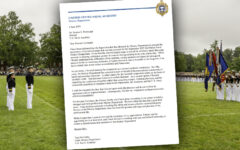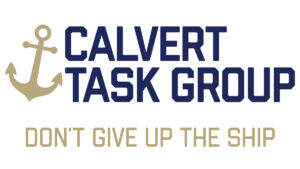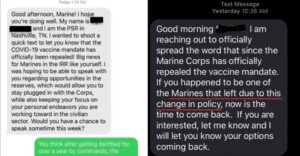Naval Academy’s Diversity “Search Advocate” Program
16 May 2024 2024-05-18 13:04Naval Academy’s Diversity “Search Advocate” Program
by CDR Salamander | Substack
There was once a time when the US military was a positive, forward moving force in bringing equal opportunity to all citizens, especially when it came to getting rid of racial discrimination.
Sadly, that is no longer the case.
While the rest of the nation moves away from the retrograde force of judging people by the color of their skin and instead focusing on the content of their character, the US military seems to be doubling down on active discrimination in hiring and promotion centered on immutable characteristics.
As in the nation on the whole is not trending as regressive as the US military, we’ll start today with an example where progress is being made.
This week, DivThu will be a good news/bad news post.
Things are moving fast on the academic front. It isn’t just the University of Florida that is ditching the whole sectarian promoting Diversity, Equity, and Inclusion commissariat, even traditionally left-of-center University of North Carolina at Chapel Hill is, after a boost from the brothers of Pi Kappa Phi, going to hit where the agents of division will feel it most – in the wallet;
As North Carolina’s public university system considers a vote on changing its diversity policy, the system’s flagship university board voted Monday to cut funding for diversity programs in next year’s budget.
The University of North Carolina at Chapel Hill Board of Trustees approved a change that would divert $2.3 million of diversity funding to go toward public safety and policing at a special meeting to address the university’s budget. The board’s vote would only impact UNC-Chapel Hill’s diversity funding, which could result in the loss of its diversity office.
This next comment resonates for me, and it should for you as well;
“It’s important to consider the needs of all 30,000 students, not just the 100 or so that may want to disrupt the university’s operations,” Kotis said. “It takes away resources for others.” …
Last month, the statewide board’s Committee on University Governance voted to reverse and replace its DEI policy for 17 schools across the state. The change would alter a 2019 diversity, equity and inclusion regulation that defines the roles of various DEI positions — and it would appear to eliminate those jobs if the policy is removed.
The full 24-member board is scheduled to vote next week on the policy change. If the alteration is approved, it will take effect immediately.
Look at that figure for UNC-CH, $2.3 million for one year. I’m not sure if that covers all the travel and other expenses for the DEI cadre as well, but one can assume that other efforts along the same lines eat up the budget as well – but let’s take that figure at face value.
Take that number and multiply by the number of universities who have similar sized branch offices of the diversity industry.
Now look at what must be spent in just the US military’s service academies. One thing I can tell you is that they are spending a lot more than $2.3 million, each.
The money isn’t the big problem however. The true cost is the warping of merit and equality by actively hiring people based on immutable characteristics. In the zero-sum-game that is hiring, giving special treatment or attention to one self-identified racial or ethnic group, while not providing equal opportunity for that treatment and attention to other racial or ethnic groups, is on its face discriminatory.
That is the true cost of DEI; not what it does to the budget, but what it does to the soul of the institution.
I’ve redacted name of the person who sent out this email. Rest assured this is not just one of the senior staff at the US Naval Academy, but he is a professor in a STEM field.
Don’t blame him – blame the institution and the Navy is exists to serve…and wouldn’t it be great to see the program information they’re presenting…
Emphasis is mine.
BEHOLD!
From: [redacted] <[redacted]@usna.edu>
Date: Wednesday, May 8, 2024
Subject: Search Advocate Program Training Sessions
To: [redacted]
Team,
Several years ago USNA launched a search advocate program. The Search Advocate (SA) serves as a member of the search committee to advocate for best practices for an inclusive search process with a goal of increasing the diversity of the faculty and staff at the Academy.
For the last several years we have had a SA on every tenure track faculty search committee. There has been interest in expanding the program to have a search advocate for all searches for appointments under the administratively determined pay system. This is a laudable goal, but to achieve this goal, we will need additional volunteers to serve as SAs on searches.
We will be offering some training for USNA’s SA program. The training involves two 90 minute sessions discussing aspects of the recruitment process from crafting an ad to interviews with information on how to improve inclusivity at each of these stages.
If you are interested in being a SA on a future search, please sign up. There are two different 90 minute sessions for the training. Included below is a link to a google sheet to sign up for sessions that would fit your schedule.
Session Schedule Options:
Day 1: Program overview & advertising
-
- 30 May 0930-1100
- 31 May 1300-1430
- 03 June 0900-1030
Day 2: Implicit bias, rubrics, and short cuts
-
- 05 June 1300-1430
- 06 June 0900-1030
- 07 June 0900-1030
SA Training Sign up
Please indicate your first preference and a second preference for both a Day 1 and a Day 2 session. I will arrange locations and promulgate the location information once I have a firm idea of the enrollment in each session. If I have missed anyone please feel free to share this email.
Thanks for your willingness to participate in this program. The SA program, also known as the Diversity Search Advocate program, is impacting the diversity of our team and strengthening USNA!
Regards,
[redacted]
[redacted]
Professor, [redacted] Department
US Naval Academy
[redacted]

We’re not seeking the best, we’re chasing the metrics.
Along the way, we’re normalizing discrimination.






























